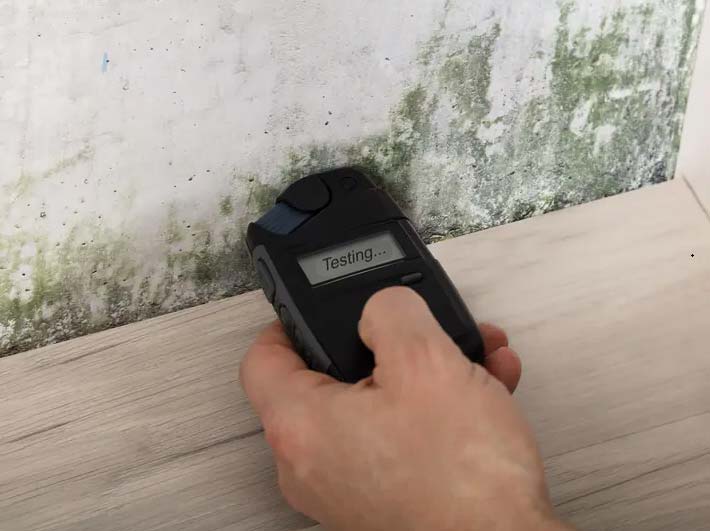Who is accountable for mold cleanup in a rental dwelling located in Pennsylvania?
Pennsylvania does not have laws for landlords regarding mold. There are no laws compelling landlords to prevent, remediate or disclose the presence of mold in their properties.
Tenants must take it upon themselves to care for their homes and prevent mold occurrence. Similarly, landlords have the responsibility to keep their homes habitable. Mold prevention and remediation are part of ensuring that the unit is livable.

What we cover
ToggleLandlord rights and responsibilities in Pennsylvania
- Keep the residence in good repair and maintain safety and cleanliness in common areas for the lease period.
- Supply heat and both hot and cold water.
- Provide garbage receptacles and ensure timely and proper removal.
- Provide sufficient notice to tenants before entry to their homes. Usually, at least 24 hours.
- Collect rent at the agreed-upon time.
- Collect security deposit
- Fix problems reported by tenants within a reasonable time.
- Comply with all housing and health codes in your area.
- Pay all costs and charges regarding the property.
Resource: See other states mold laws here
Tenant rights and responsibilities in Pennsylvania
- To live in habitable conditions.
- Timely repair for all problems you report.
- Fix all damage that is your fault.
- Pay the required amount of rent at the agreed time.
- Use provided garbage disposal receptacles.
- Ensure quiet enjoyment of the property for other neighbors.
- No retaliation from the landlord for exercising legal rights.
How long does a Pennsylvania landlord have to repair mold?
Landlords in Pennsylvania have up to14 days upon receiving notice of the presence of mold to have it repaired.
Tenants are required to allow their landlords reasonable time to fix reported problems.
When it is an emergency, landlords have up to 48 hours to fix mold or other damage in their homes.
If they fail to fix the problem, Pennsylvania law allows tenants to withhold rent until the landlord fixes their problem. However, they must give written notice to the landlord of their intention.
When this happens, the law prevents the landlord from retaliating against the tenant through evictions or raising the rent.
Mold disclosure law in Pennsylvania
Pennsylvania does not have any laws that require landlords to disclose the presence of mold in their units to new tenants.
Federal law requires property sellers to disclose the presence of lead paint for homes built before 1978.
Additionally, landlords have to disclose any environmental hazards they are aware of in or around the house.
Can you break your rental lease in Pennsylvania due to mold?
In Pennsylvania and many states, tenants are legally not allowed to break the rental lease if they are the cause of the mold.
When tenants notice problems that can cause mold, they should report them to the landlord immediately.
Leaking pipes, taps, floods, and spills are causes of mold in the house. Report these to your landlord before they cause more problems in your unit.
Document the problems in photos and inform your landlord in writing. Also, record all the discussions and promises that the landlord offers.
If the landlord does not fix the problems you report and mold gets to unmanageable levels, you are allowed to withhold the rent until the landlord repairs it.
You must have notified your landlord of your intention to repair in writing before the rent is due.
Constructive eviction is when you break your lease since the unit is no longer habitable because the landlord refused to fix the problems.
If the landlord sues you for the rest of the rent, you must prove in court that the house was uninhabitable, the mold was not your fault, and that you had notified your landlord, and they did not fix the house.
You can legally break your lease to start active military duty or if the landlord discriminates against you.
Can a Pennsylvania tenant withhold rent due to mold?
A Pennsylvania tenant can withhold rent to compel the landlord to fix some damage in the unit.
Tenants can withhold rent after a government agency certifies the house is uninhabitable. Deposit the withheld rent in escrow and release it to the landlord after satisfactory repairs.
Can a Pennsylvania tenant seek justice in court due to mold?
In Pennsylvania, a tenant can sue the landlord for mold when;
- The landlord refused to fix water leaks reported before the mold appeared.
- If you have spent money in a hospital or on medication due to mold exposure.
- Lost income due to a condition caused by mold exposure.
- If you have spent any money to remediate the mold.
- For mold-related damage to your property not covered by your renter’s insurance.
- For pain and suffering caused by the health effects of mold.
- The mold presence is not your fault.













